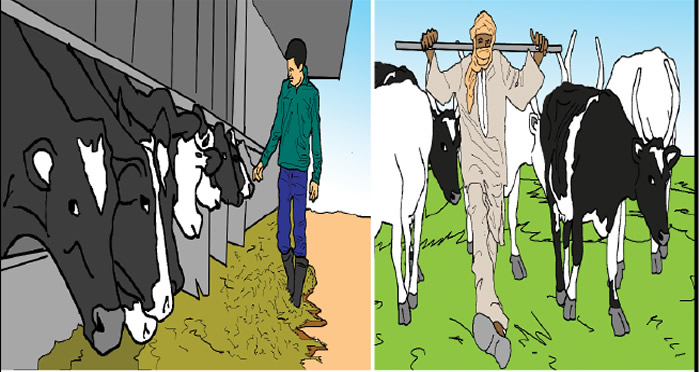IN the face of evolving agricultural challenges and the increasing demand for food, Nigeria stands at a critical juncture where strategic investments can transform its agriculture landscape. Ranching is a compelling solution, promising economic prosperity, and enhanced food security. Nigeria must commit to this forward-thinking agricultural practice to unlock its vast potential.
It is a no-brainer that the way to end the age-long herders’ attacks on farmers and stimulate the livestock business is ranching. Thus, the recent decision by the Senate to convene a national summit on the herders’ rapine is at best another jamboree.
The latest gyration from the Senate was motivated by the series of herdsmen attacks on the Kogi communities of Agojeju Odo, Ajokpachi Odo, Bagaji, Bagana, and Ajokpachi Odo in Omala Local Government Area between April 5 and April 30. Over 30,000 inhabitants were reportedly rendered homeless, leading to an exodus to other parts of the state. About 21 innocent residents were killed, in addition to the destruction of farms.
Some lawmakers called for prohibiting open cattle grazing in their contributions during plenary. Others recommended ranching. However, the chamber resolved to set up an ad hoc committee to organise a public hearing to resolve the conflict.
This is not the first time the lawmakers would engage in such an expensive and time-wasting excursion while criminal herders continue to unleash their sting on hapless farmers. The recommendations from such past legislative exercises were never implemented. Nigeria is in a precarious situation and should focus on implementing workable solutions, not organising another jamboree with predictable outcomes.
As the lawmakers engage in inanities, Nigeria is suffering. It is a major producer of livestock (cattle and goats) in sub-Saharan Africa. It is also the largest importer of milk in the region, with an annual import bill of $1.3 billion, per financial researcher, Proshare.
But investing in ranching can catalyse a significant economic transformation. The traditional pastoralist approach, deeply rooted in the country’s heritage, has limitations in productivity and profitability. Ranching offers a more controlled and efficient livestock management system, leading to higher meat, milk, and other animal product yields.
This increased productivity translates into higher incomes for farmers and herders, creating a ripple effect that benefits rural economies. It is therefore important for the Federal Government and the states to drive policies and programmes that can create the right environment for the ranching business to thrive and prosper. The industry is a significant employer in many countries and provides farming, processing, and transportation jobs.
Brazil exports roughly 2 million metric tons of beef yearly. The South American country accounts for about 20-25 per cent of global beef exports.
Australia has an estimated cattle population of around 24-25 million head. It produces approximately 2.2 to 2.5m metric tonnes of beef annually to support domestic consumption and a robust export market.
Government policies and support systems are crucial in addressing ranching challenges. Establishing cooperatives can help small and medium-sized ranchers pool resources, gain better market access, and negotiate fair prices.
For security reasons, Governor Umaru Bago of Niger is planning to ban open grazing in the state. This sets him apart from the other 18 governors in the North, who are still tolerating open herding for cultural and sentimental reasons.
In January 2021, the South-West governors banned open grazing in the region because of the violence associated with it. Many farmers abandoned their farms to escape the attacks by Fulani herdsmen. Others suffered kidnapping at the hands of the itinerant herders.
Instead of supporting the ban, the governors in the North politicised the policy. The ban has not been effective: open herding is still widespread in the region. The governors need to implement it rigorously.
By investing in ranching, Nigeria can enhance its food security, and reduce its dependence on imported meat and dairy products.



